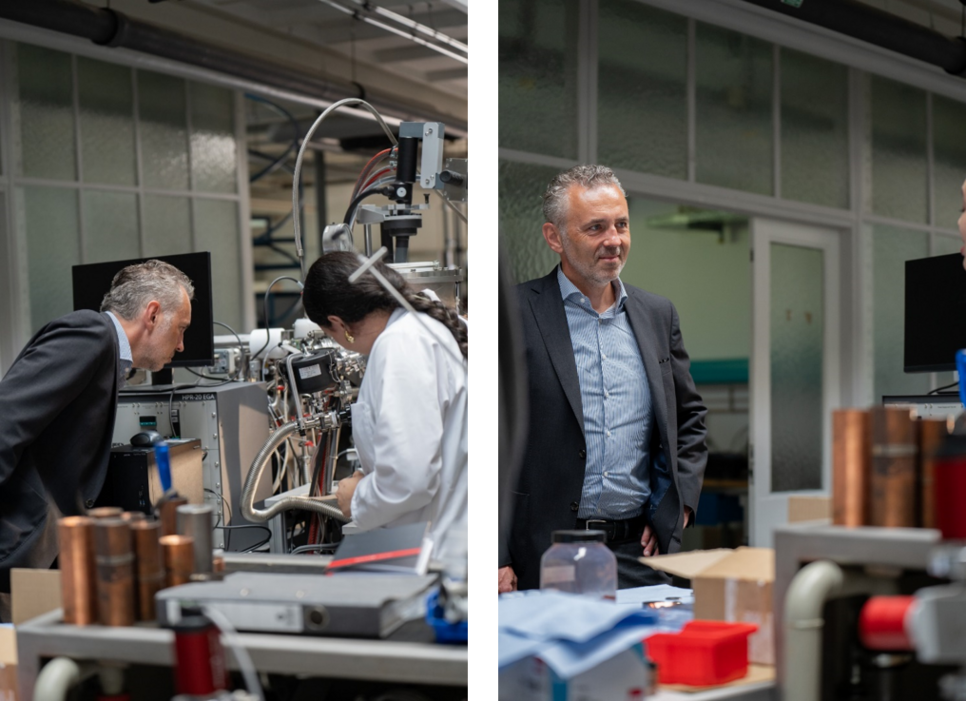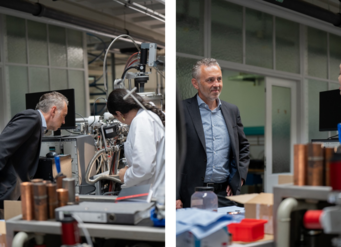Focus on sustainability and digitalization: Member of the German Bundestag Thomas Jarzombek visits the Max Planck Institute in Düsseldorf
Thomas Jarzombek, Member of the German Bundestag and spokesman of the CDU/CSU parliamentary group in the Committee for Education, Research and Technology Assessment, visited the Max Planck Institute for Sustainable Materials (MPI-SusMat) in his Düsseldorf constituency on 20 August. The institute's international scientists demonstrated how they are working on the sustainable production of steel and energy materials, and how artificial intelligence can help in these efforts.

"Basic research is crucial for developing innovative technologies. The Max Planck Society, with its 31 Nobel Prizes, stands as a global leader in this domain. The Max Planck Institute in Düsseldorf demonstrates the vital role materials play in shaping a sustainable future. It’s a reminder that we must consider entire value chains in our research, rather than thinking too compartmentally, especially regarding materials. Today, I've gained valuable insights, which will also inform our approach in politics", said Jarzombek. The role of basic research in complex value chains was also the central theme of the introductory talk by Prof. Dierk Raabe, managing director of MPI-SusMat: "Metal production is currently responsible for around 10% of all greenhouse gases. At the same time, our demand for metals is expected to almost double in the coming decades as the world's population grows and economies develop. If we are to meet our climate goals and continue to develop high-tech applications, we must strive to keep every single atom in circulation and use it optimally, from extracting metals from ores to recycling and reclaiming landfill waste. This is the thread that runs through all our basic research.”
During the visit, scientists from MPI-SusMat demonstrated how they use hydrogen plasma to extract iron from ores or even industrial waste in a climate-neutral way, how they recycle magnets from wind turbines and electric vehicles, and how they are working to make water-splitting catalysts more efficient and durable. Another topic of discussion was the use of artificial intelligence and machine learning to help researchers design experiments more precisely and faster.
Author: Yasmin Ahmed Salem
